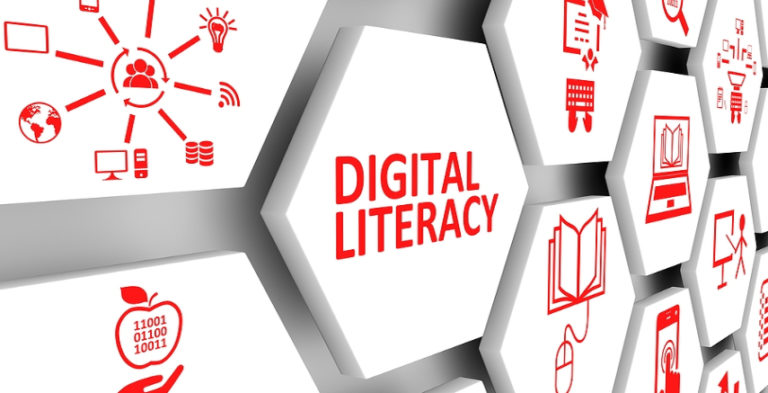The way we work is changing. Although technology is not “taking our jobs,” it has fundamentally changed the way we work and the skills we need to be successful. For example, being able to work with data and draw conclusions is now a more valuable and necessary skill than memorizing facts. Ensuring that committed employees can thrive in this new environment requires organizations to offer opportunities for upskilling.
Upskilling is a specific type of training designed to teach new skills to help people succeed and advance within their current role. Other training and re-skilling are designed to move people into new jobs and roles, while upskilling is focused on addressing gaps in their current knowledge that impact their ability to do their job. With technology advancing the pace of change at a high rate, these gaps are not the “fault” of the employee or employer; rather, they are a reality of the current pace of change.
Cyber knowledge for non-cyber roles
When an individual or a small business suffers a cyber-attack, their first call is frequently to 911 or local law enforcement. Large cities may have cybercrime bureaus to immediately direct these calls to, but the majority of law enforcement organizations have to respond through more traditional channels. The Texas Department of Information Resources has launched an online course to recognize and respond to digital crimes like ransomware. This course is not focused on understanding how cybercrime happens; rather, it focuses on how to identify it as a crime and the steps to take to get it to the right authorities to resolve.
Skills-based hiring can fill key gaps
There is a huge gap between the open positions focused on Artificial Intelligence (AI) and Cybersecurity and the number of people trained and able to fill them. This reality is forcing agencies to shift hiring practices to a skill-based assessment of job candidates. Skill-based hiring looks beyond degrees and certifications. Instead, it identifies candidates with skills that are applicable to the role. For example, a person may not have a computer science degree, but they have worked extensively with a key programming language or system in previous roles.
With this type of hiring, on-the-job training becomes critical to ensure employees have the precise knowledge and skills to complete tasks. CISA, USDA, VA, and many others have included upskilling as a key tenant of agency AI and data strategies.
Legislating upskilling
The White House is working closely with Congress to develop legislation that would establish a Cyber Workforce Development Institute to formalize the way federal employees are trained on cyber knowledge and skills. Today, the Federal Cyber Workforce Development Institute is working with HR and hiring managers to train them on new hiring strategies (including skills-based hiring) and tactics to ensure they are recruiting and retaining the right talent to fill cyber roles. The Cyber Workforce Development Institute would extend beyond HR and provide training targeted for entry-level, mid-career, and senior personnel.
For more details on how the government is evolving to support modern workforce needs, check out these resources from GovWhitePapers and GovEvents:
- Workforce is a Critical Infrastructure: Strengthening the Defenders (white paper) – The resilience of critical infrastructure and the security of the nation are not dependent on any singular technology. Attacks are repelled due to the underappreciated actions of the cyber workforce. The cyber workforce is not a tool or resource deployed across each sector. The workforce is a critical infrastructure, and in its absence, all other sectors would collapse.
- A Call to Modernize the Army Experience (white paper) – Whether our force is competing or dealing with a crisis event, our soldiers are committed to protecting our Nation, our values, and our citizens’ way of life every day. To win in our war for talent, we must modernize how we conduct professional development and take a holistic approach to retaining and recruiting our talent.
- The Core of Federal Cyber Talent: Trends of Participating Institutions in the CyberCorps Scholarship-for-Service Program (white paper) – Strengthening the federal cyber workforce is one of the main priorities of the National Cyber Workforce and Education Strategy. The National Science Foundation’s CyberCorps Scholarship-for-Service program is a direct cyber talent pipeline into the federal workforce. This policy brief summarizes trends from participating institutions to understand how the program might expand and illustrates a potential future artificial intelligence federal scholarship-for-service program.
- The Future of the Workforce (white paper) – At a recent executive roundtable discussion hosted by the Advanced Technology Academic Research Center (ATARC), experts from various federal agencies came together to discuss the future of the federal workforce and the critical need to reform federal hiring.
- Enterprise Generative AI Summit (May 21-22, 2024; Mountain View, CA) – Business leaders can get up to speed with the fundamentals and most recent developments of generative AI for safe and affordable enterprise use. Learn about generative AI-related enterprise workforce optimization, investment in infrastructure, risk management frameworks, and upskilling your teams.
- LEAP HR: Government 2024 (June 4-5, 2024; virtual) – Hear how the most forward-thinking State and Local Government HR leaders are re-strategizing to attract next-generation talent, employ non-monetary total rewards, create a workforce plan for the great retirement, and recruit and retain your all-important public sector workers.
More insight into upskilling the federal workforce is available on GovWhitePapers and GovEvents.









